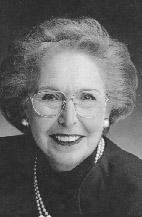Mr. Speaker, Jacques Parizeau said yesterday that his money and ethnic votes statement is not a claim, it is a statistic.
Statistics or not, we live in a country with freedom of expression and with the right to feel that we are full citizens. As citizens who have and do contribute to the well-being of our city, province and country, we are entitled to our ethnic views, our vote and our choice for a future in Canada.
Mr. Parizeau is not an ordinary citizen. He was the premier of our province and as such had an obligation to include, with respect, all citizens regardless of their perspective. His xenophobia is unacceptable.
The same goes for Mr. Bouchard who stated that he is “a fervent admirer of Mr. Parizeau and that he is one of the most brilliant political figures of his generation, an extraordinary man”. Sadly Mr. Bouchard is entitled to his narrow vision but it is not the opinion shared by the majority of Quebeckers. We have the right to our opinions, our choice for our future and that of our families and our children.
Enough is enough, Mr. Parizeau and Mr. Bouchard.

